Electrifying school bus fleets: The importance of choosing your suppliers
In this series of articles, we demystify the key steps of converting your school bus fleet to electric power thanks to the Transporteur+ guide. This guide aims to provide easy and direct access to resources to clarify the steps, issues, conditions and facilitating measures for a successful transition to electrification.
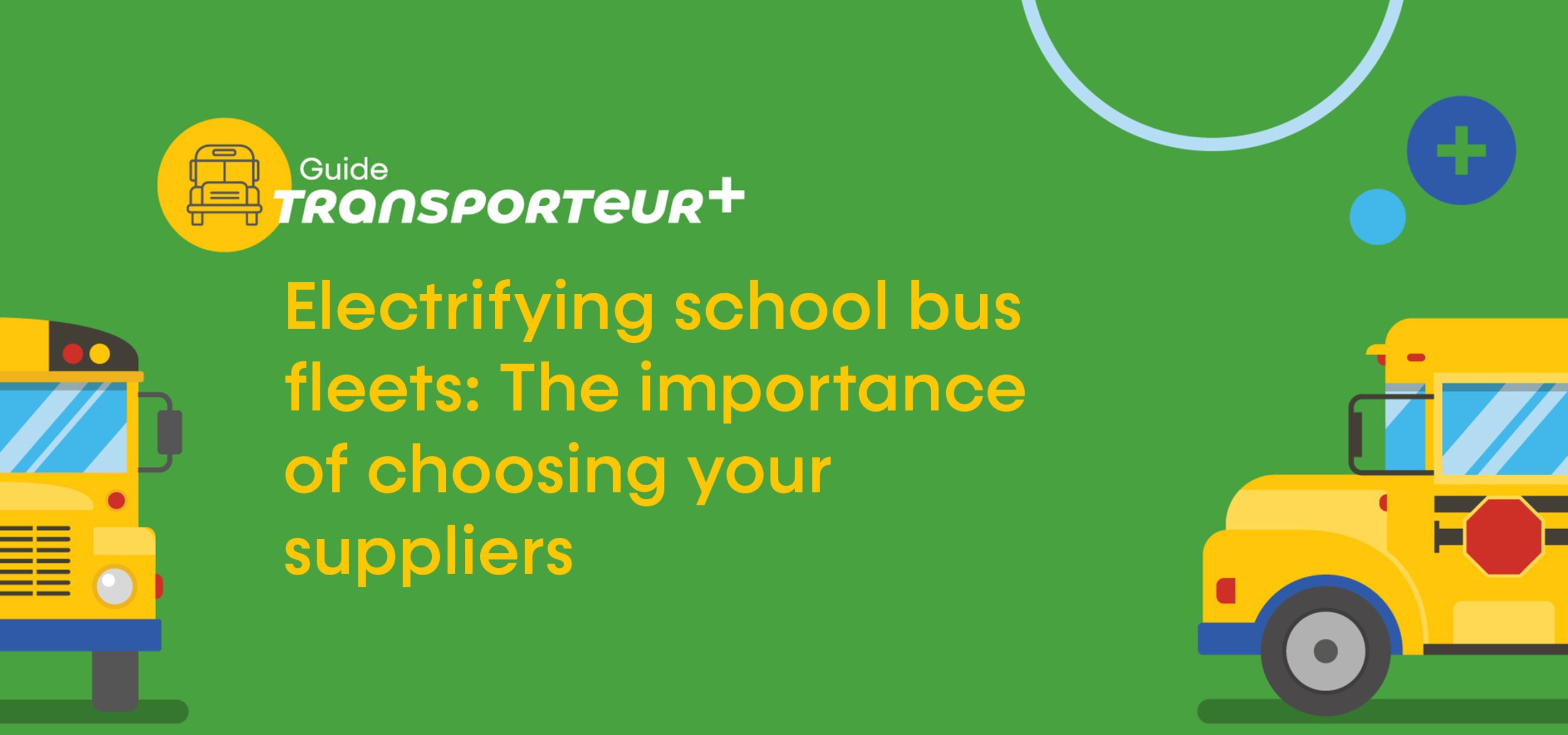
Once you’ve gone through the major planning steps, it’s time for the crucial step of choosing your suppliers. Before buying your very first electric bus, several elements must be considered: as a buyer, you have the right to request technical answers from the suppliers you wish to work with. Whether it’s about the battery life or delivery lead times, this article will provide you with the key questions you need to ask bus suppliers and electrical equipment and service providers so you can make an informed decision.
Choosing the right bus supplier
Clearly, one of your main suppliers will be the electric bus manufacturer. They must meet some very specific criteria to ensure that your school bus electrification project runs efficiently. Think about asking the different suppliers you are considering about their battery warranty and the warranty conditions. For example, lithium batteries can be guaranteed for up to 12 years, but this comes at an additional cost. In addition, ask the manufacturer about the life cycle of their batteries and the measures they have put in place to recycle them once they reach the end of their useful life.
Furthermore, feel free to ask suppliers about maintenance: What is the availability of spare parts? Which repair centre and dealer are closest? Ask for more details on the general warranty period and delivery lead time, to make sure that this aligns with your electrification schedule.
Last but not least, some suppliers offer training when the bus is delivered, which includes safety equipment maintenance.
Choose electrical equipment and service providers that meet your needs
At this stage, it is important to refer to your initial plan to properly identify your needs based on your reality. To ensure that everything aligns, the most important question pertains to the delivery and installation time for charging equipment. Bus and infrastructure deliveries must be coordinated.
If you are purchasing charging management software, it is important to check whether this system is compatible with all manufacturers’ charging stations. Just as for your electric bus supplier, it is important to know all the details of the proposed services. For example, does the service provider take care of or help with grant applications and planning? Ask your turnkey charging solution providers about their solutions to quickly remedy power failures and how they plan for electrical redundancy.
Lastly, ask about their annual management fee for the software if the number of electric buses in the fleet changes, and whether it is compatible with your operating system. If applicable, purchasing additional equipment should be included in your electrification plan.
This project was made possible thanks to the financial support of the Government of Quebec, the Trottier Family Foundation, the Greater Montreal Climate Fund and the Fonds de solidarité FTQ. Propulsion Québec would also like to thank The Transition Accelerator and the WSP Canada team for their critical contributions, as well as all the experts involved in the development of this guide.
Continue reading on the subject

Zero-Emission Delivery Hub
The main objective of the zero-emissions delivery hubs project is to decarbonize last-mile delivery in Montreal’s delivery-dense areas. Last-mile delivery, also called urban delivery, is one of the most polluting steps in the delivery of your parcels. By integrating a drop-off point, also called a “zero-emissions delivery hub,” for decarbonized last-mile delivery in your area, […]
Read more
The challenges of designing a 40-tonne, 100% electric mining vehicle for open-pit mines
Partnerships and implications The partners involved in the development of a 100% electric Quebec mining vehicle were all eager to be involved with the project from the outset, for a variety of reasons. NRC’s Eddy Zuppel explained their contribution: “Before starting the project, it was important to model and simulate the vehicle’s route in order […]
Read more
Energy efficiency: Financial support to put your ideas into action
Leading a company involves balancing several priorities at the same time. Energy efficiency? It’s an important issue—one of many! What if we gave you what you need to make energy efficiency a driving force behind your company’s performance and profitability? The good news is, Hydro-Québec offers financial assistance and guidance to help you balance performance and energy efficiency.
Read more
My Consumption Profile: data that lets you strategically manage your electricity use
Companies have a critical role to play in the energy transition. Knowing that energy efficiency factors big into profitability, your organization will benefit from strategically managing its electricity use. The key? Your data!
Read more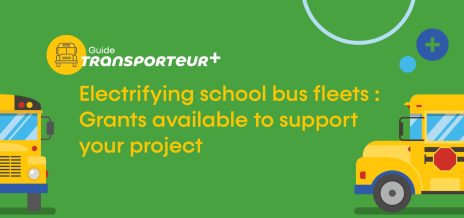
Electrifying school bus fleets : Grants available to support your project
In this series of articles, we demystify the key steps of converting your school bus fleet to electric power thanks to the Transporteur+ guide. This guide aims to provide easy and direct access to resources to clarify the steps, issues, conditions and facilitating measures for a successful transition to electrification.
Read more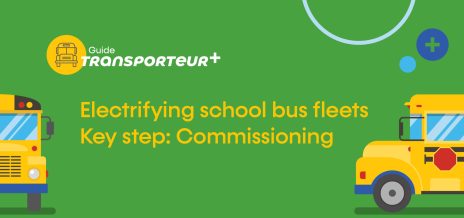
Electrifying school bus fleets | Key step : Comissioning
In this series of articles, we demystify the key steps of converting your school bus fleet to electric power thanks to the Transporteur+ guide. This guide aims to provide easy and direct access to resources to clarify the steps, issues, conditions and facilitating measures for a successful transition to electrification.
Read more
Demand response: Save money by using hydro at the right times
If you could lower your company's hydro bill while contributing to the collective effort to support Quebec’s energy transition, would you? Yes, most likely! How? By curbing power demand for buildings and equipment during peak demand events.
Read more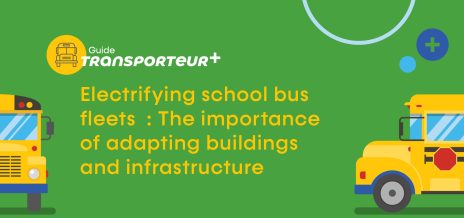
Electrifying school bus fleets : The importance of adapting buildings and infrastructure
In this series of articles, we demystify the key steps of converting your school bus fleet to electric power thanks to the Transporteur+ guide. This guide aims to provide easy and direct access to resources to clarify the steps, issues, conditions and facilitating measures for a successful transition to electrification.
Read more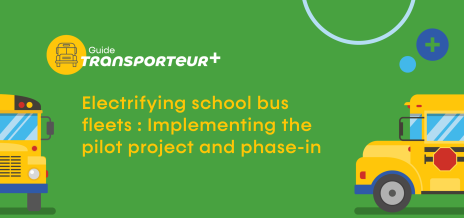
Electrifying school bus fleets : Implementing the pilot project and phase-in
In this series of articles, we demystify the key steps of converting your school bus fleet to electric power thanks to the Transporteur+ guide. This guide aims to provide easy and direct access to resources to clarify the steps, issues, conditions and facilitating measures for a successful transition to electrification
Read more
Defence and Security
The Electric and Smart Transportation (EST) positioning program for D&S is a project that will ultimately allow Propulsion Québec members to tailor their product and service offering to multiple D&S markets, facilitating the transition to electric and smart vehicle fleets and infrastructure.
Read more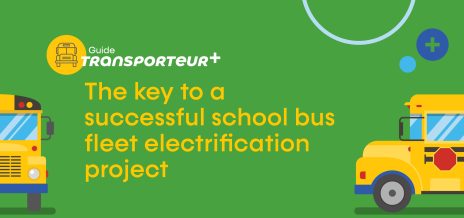
The key to a successful school bus fleet electrification project
In this series of articles, we demystify the key steps of converting your school bus fleet to electric power thanks to the Transporteur+ guide. This guide aims to provide easy and direct access to resources to clarify the steps, issues, conditions and facilitating measures for a successful transition to electrification.
Read more





